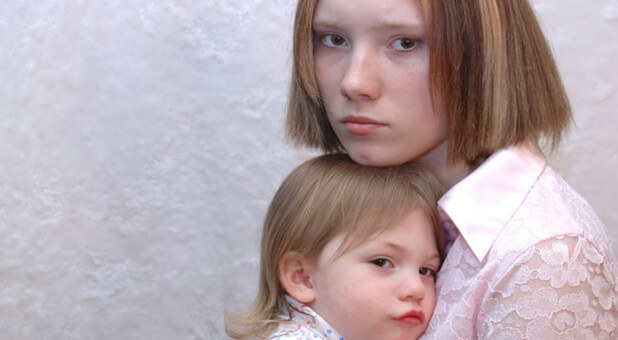When I became a parent, it never crossed my mind that I might end up with a friend problem. I’d never had trouble making friends, but my journey from being single to married to mommy—all within two years—had caused my social life to suffer. Most of my friends were single and working, which worked out great when I could meet them for lunches and evening coffees. But all of that was about to change.
Although I was excited about the transition, I wasn’t prepared for the isolation I would face going from a full-time job to staying home with my baby. I didn’t understand how difficult it would be to maintain friendships with people whose social circles I no longer frequented. And when Josiah arrived, I soon learned that I could only survive for so long on Facebook “likes” before I felt like I was stranded on a desert island with only a volleyball (like Tom Hanks in Castaway) . . . excuse me, an infant . . . for company.
And to be honest, I didn’t really know how to engage with the “mommy culture.” I felt totally competent meeting with single women and offering them dating advice, or talking to writers about crafting an engaging article, but I felt at a total loss inserting myself into a conversation about what kind of diapers are best. I didn’t feel like an expert on being a mom, and that lack of confidence caused me to shy away from connecting with other mommy-types.
That’s when I decided a few things needed to change, and I became intentional about nurturing friendships with other women. Here’s what I did to pull myself out of my friendless void:
Finding Face Time. Before my baby had been born, I had experienced adult social interaction throughout every day. It was a big adjustment to be at home with a non-verbal infant. I talked to my husband, Kevin, about my loneliness and feelings of isolation, and we agreed that I would schedule “date nights” with friends at times when he could be with our son. Several times a month, I would meet a friend for coffee, go to a movie, or go out for dinner—baby-free. These social times with existing friends, were rejuvenating for me and gave me more energy to care for the needs of my baby and husband.
Unplugging. Along with my newfound days of staying home with my son came a rise in my social-media consumption. On one hand, it was a wonderful way to connect with others throughout the day, and it filled the void of the digital communication I’d experienced in the workplace. But as a new mom who didn’t always feel like I was performing the tasks of motherhood well, the “mama highlights reel” I saw online left me feeling inadequate and depressed. (Studies show that regular Facebook consumption leads to greater levels of unhappiness. http://www.newyorker.com/tech/
When I disciplined myself to not “snack” on social media all day long, I felt more free to be the mother God had created me to be—not the mom who cultivated homemade yogurt on her counter, redecorated the nursery on a regular basis or always had dinner on the table when her husband returned home from work.
Braving Mommy-Culture. Because my entrance into marriage and motherhood had been so fast and furious, I found myself reluctant to form relationships with other moms. One practical consideration was that I was in my 30s when I became a mom, while many other first-time moms are in their 20s. In addition, I had a fairly robust identity as an individual (an identity forged in the trenches of singleness) and I found it awkward discussing new and unfamiliar topics, such as diapering and sleep training. In truth, I felt insecure in my new role.
Around the time I had my second child, I realized I really needed friends who were in my stage of life. My unmarried and childless friends were great, but I also needed women who understood what I was going through right now. And so I reluctantly joined a moms group at our church. The experience wasn’t perfect—there were some women I didn’t relate to because they were really young moms or seemed to have few interests outside of motherhood—but the benefit was realizing that I wasn’t alone. I wasn’t the only mom who had insecurities about being a mom. The group provided a place where I could let down and admit to my struggles—and others could say “me too.”
My transition into motherhood was a bit of a rocky road socially. Now, as a mom of three, I still struggle to find time for cultivating meaningful friendships and connecting with mommy culture. But I’m beginning to find a rhythm. I recognize when I’m feeling socially starved and make a plan to engage in community. Women need other women at every stage of life—and maybe even more so as new moms. In my case, that required going out of my comfort zone, but it was well worth the journey.
*****
Suzanne Hadley Gosselin is a regular contributor to Thriving Family magazine and Boundless.org and writes children’s resources for several publishers. After having three children in less than five years of marriage, Suzanne and her husband, Kevin, who is a children’s pastor, consider themselves on the family fast-track—a blessing they wouldn’t trade for anything. Gosselin is the author of the newly released, Expectant Parents: Preparing Together for the Journey of Parenthood (Tyndale – Focus on the Family)











































